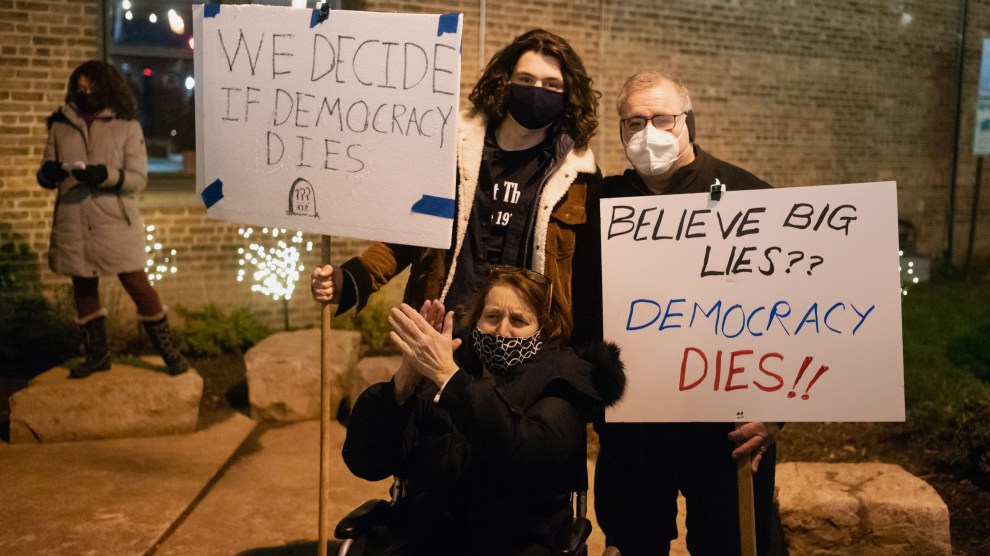
Pennsylvania Lt. Gov. John Fetterman, Democratic candidate for US Senate, waves to supporters after addressing an Election Night party in Pittsburgh.Gene J. Puskar/AP
Before Tuesday’s election, the prognosis for democracy seemed bleak to outright apocalyptic. Republican election deniers were running up and down the ballot in key battleground states, threatening the future of free and fair elections. Armed vigilantes were guarding ballot drop boxes in places like Arizona, leading to fears of voter intimidation. Thousands of “Stop the Steal” activists had been recruited as poll workers and election officials, prompting worries of confrontations at polling places and vote counting centers.
Those worst-case scenarios for democracy have been averted so far. Things largely went smoothly during early voting and Election Day. There were few flare-ups at the polls or while votes were being counted. Election deniers lost key races for offices like governor and secretary of state in places like Wisconsin, Michigan, Pennsylvania, Minnesota, and New Mexico, with contests in Arizona and Nevada still close to call. At the state level in Michigan, voters defended voting rights by passing a ballot initiative requiring at least nine days of early voting, protecting access to vote by mail, and preventing partisan actors from overturning election results.
But that doesn’t mean that threats to democracy have all been extinguished or that GOP efforts to rig the political process didn’t succeed. Nearly 200 Republicans who questioned the results of the last election were elected to key federal and state offices, according to the New York Times.
And extreme gerrymandering may have given Republicans control of the US House and preserved GOP dominance in key battleground states. Republicans needed to win only five seats to retake the House, and according to Daily Kos Elections, the party picked up six open seats on Tuesday in Florida, Georgia, Tennessee, and Texas that the GOP gerrymandered. A Supreme Court decision in 2019 ruling that partisan gerrymandering cannot be challenged in federal court helped pave the way for these skewed maps, and recent high-court decisions reinstating racially gerrymandered maps in Alabama and Louisiana seats eliminated two additional majority-Black districts that would have almost certainly been represented by Democrats.
Moreover, newly drawn GOP maps in states like Wisconsin continued to increase the GOP’s state-level advantage. Democrat Tony Evers won the governor’s race by nearly 3.5 points—practically a landslide by Wisconsin standards—but Republicans are projected to win a two-thirds supermajority in the state Senate and come just short of similar margins in the state assembly, which would’ve allowed them to override Evers’ vetoes, because of the rigged maps they passed in 2021.
Contrast that with Michigan, where a nonpartisan citizens commission created by voters through a ballot referendum drew new state legislative districts after the 2020 census, creating significantly fairer and more competitive maps that allowed Democrats to retake both chambers of the legislature and control state politics for the first time since 1984.
Meanwhile, Republicans flipped control of state supreme courts in Ohio and North Carolina, which could lead GOP state legislatures there to draw new gerrymandered maps for 2024 after previous gerrymanders were struck down in state court. That shows that despite the victories for democracy on Tuesday, the fight for free and fair elections is far from over.













